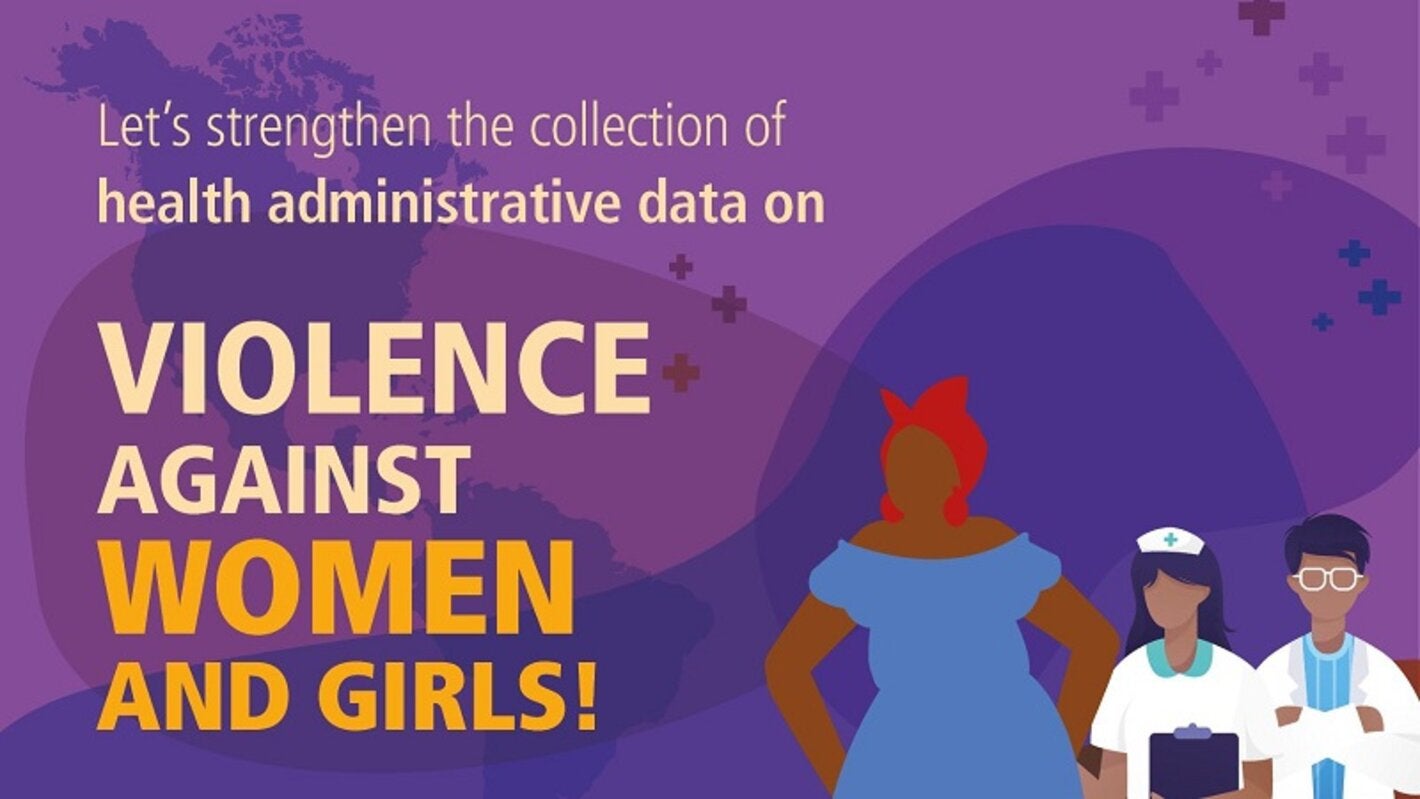
Montevideo, 5 December 2024. In the framework of the 16 Days of Activism Against Gender Violence Campaign, the Virtual Launch of the Health Administrative Data Toolbox on intimate partner violence and sexual violence took place on 3 December.
During the opening, Anselm Hennis, Director of Non-communicable Diseases and Mental Health at the Pan American Health Organization (PAHO), said that violence against women and girls remains a major challenge in the Americas region and that health systems have a critical role to play in preventing and responding to violence. ‘Timely administrative data is essential to design evidence-based policies, strengthen health systems, and improve the quality of health by preventing violence,’ he said.
The director of the Latin American Centre for Perinatology - Women's and Reproductive Health (CLP/WR), Suzanne Serruya, said that violence is structural in our societies and stressed the need to focus efforts on the most vulnerable populations ‘the youngest, the oldest, the disabled, those who belong to cultures where their rights are violated,’ she said. The director of CLP/WR also pointed out that the pandemic had a very strong impact on the increase in femicides and suicides and stressed the importance of working from an intersectoral approach to prevent and mitigate the consequences of violence.
PAHO's Regional Advisor on Violence and Injury Prevention, Britta Baer, and consultant Erin Hartman introduced the SIP form on gender-based and intimate partner violence.
Baer noted that statistics from the region indicate that one in three women and girls aged 15-49 have been victims of physical or sexual violence at some point in their lives. In this context, it is essential to strengthen data systems. Timely administrative health data can improve access to and use of services, improve the quality of response, provide continuity and coordination, facilitate care within and outside the health system, facilitate access to justice, provide information for policy development and implementation, document cases; and monitor the consequences of violence.
Hartman explained that the form, which is part of the Perinatal Information System (SIP), was designed to document the care given to survivors of violence in the medical record. The consultant stressed that the form, which can also be used for male and child survivors of violence, should be implemented according to local legislation and adapted to local culture and capacities, as part of ‘comprehensive strategies to address violence’.
PAHO's regional advisor on Sexual and Reproductive Health, Rodolfo Gómez Ponce de León, presented the SIP Plus (web version of the SIP) and explained that this PAHO tool is free and allows not only for storing but also for processing data. In addition, Gómez said it is a great ‘roadmap’ designed based on the latest PAHO recommendations and includes alerts that favor quality care. ‘The SIP Plus is a surveillance and management tool, currently used by more than 25 countries in the region. He explained that it has more than 3,200 variables and 2,500 health indicators.
Mariana González, CLP/WR consultant for the SIP, conducted a live test through a demo to show, in real time, how to access the automatic reports with one click that the SIP Plus offers.
Country experiences
Antigua and Barbuda. Raymond Mansoor, consultant in the Department of Obstetrics and Gynaecology, said that the country has been working with CLP/WR on implementing SIP Plus for some time and highlighted the program's versatility in adapting to local requirements.
Honduras. Tracy Lemus of the Honduran Ministry of Health (SESAL) emphasised the importance of having data to be able to measure the problem and provide adequate care. Currently, SIP Plus is hosted on all SESAL servers, and there is a commitment to continue scaling up through new SIP Plus modules.
Perú. Lisette Hernandez, Health Information System Analyst at the Ministry's Department of Sexual and Reproductive Health (DSARE), spoke of the importance of having real-time data. She also highlighted SIP Plus's ability to interoperate with other systems in the country.
Trinidad and Tobago. Medical research manager and auditor at the Trinidad and Tobago Ministry of Health, Roma Bridgelal-Nagassar, said violence against women is a very serious problem in the country. According to a 2017 survey, survivors seek help from health services. This represents an opportunity to intervene. With support from the Spotlight initiative, the country worked on the violence form, which is now being updated. The specialist stressed the importance of training health professionals in the correct approach. While the country started working on the paper form in 2025, it is expected to move forward with the digital version of SIP Plus.
This action was developed thanks to the support of the Spanish Agency for International Development (AECID).



